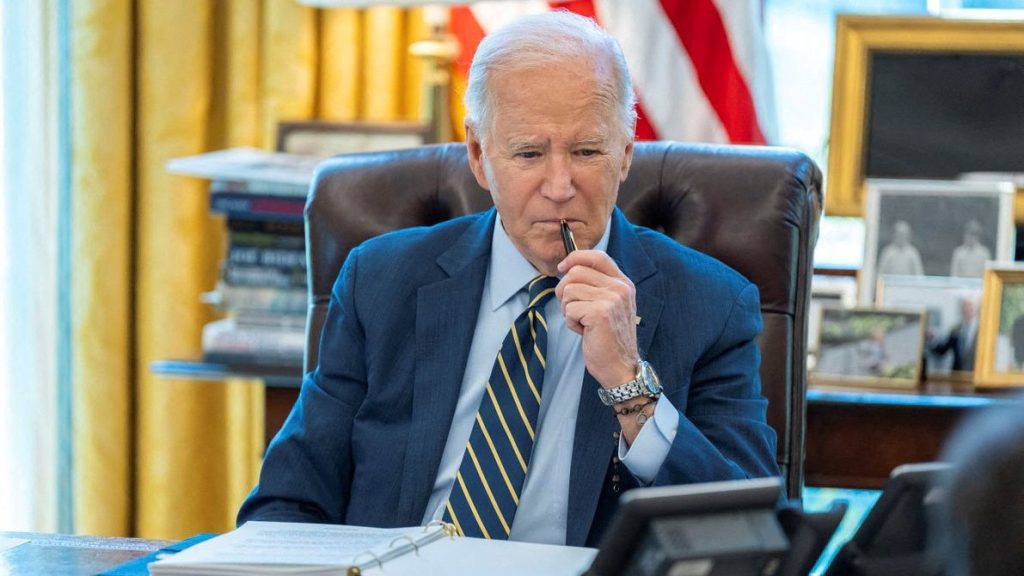In recent weeks, the Israel-Hamas conflict has once again captured the world’s attention, prompting heated debates and calls for action on the international stage. At the center of this complex geopolitical situation lies the delicate balance of U.S. foreign policy under President Joe Biden’s administration. With escalating tensions and mounting casualties in the region, the Biden administration faces significant pressure to navigate the crisis while upholding America’s strategic interests and promoting peace and stability in the Middle East.
Understanding the Conflict: The roots of the Israel-Hamas conflict trace back decades, marked by territorial disputes, historical grievances, and competing narratives of national identity. At its core, the conflict revolves around the Israeli-Palestinian struggle for self-determination and control over land considered sacred by both sides. Over the years, intermittent bouts of violence have erupted, perpetuating a cycle of bloodshed and suffering for civilians caught in the crossfire.
Biden’s Approach: Since assuming office, President Biden has sought to strike a delicate balance in his approach to the Israel-Hamas conflict. On one hand, the United States maintains unwavering support for Israel’s right to self-defense and security, rooted in a longstanding alliance and shared democratic values. On the other hand, the Biden administration recognizes the need for a comprehensive and equitable solution that addresses the legitimate grievances of the Palestinian people and promotes a two-state solution.
Criticism of Netanyahu: Amidst the recent escalation of violence, President Biden has publicly criticized Israeli Prime Minister Benjamin Netanyahu’s handling of the conflict. Biden’s remarks reflect growing frustration with Netanyahu’s policies, particularly concerning settlement expansion in the West Bank and the treatment of Palestinian civilians in Gaza. The Biden administration’s willingness to challenge Netanyahu signals a shift in U.S. policy towards Israel and underscores the importance of holding all parties accountable for their actions.
Progressive Voices and Congressional Pressure: Progressive voices within the Democratic Party have been vocal in their condemnation of Israel’s actions and have called for a more assertive stance from the Biden administration. Senate Majority Leader Chuck Schumer’s criticism of Netanyahu’s political maneuvers reflects a broader sentiment among Democrats who advocate for a reevaluation of U.S. military aid to Israel. Furthermore, more than three dozen Democrats in Congress have urged President Biden to condition arms transfers to Israel on efforts to minimize civilian casualties and facilitate humanitarian aid to Gaza.
International Diplomacy and Ceasefire Efforts: In addition to domestic pressure, President Biden has engaged in diplomatic efforts to de-escalate the conflict and broker a ceasefire between Israel and Hamas. Biden’s outreach to regional allies, including Saudi Arabia, Jordan, and Egypt, underscores the importance of multilateral cooperation in resolving the crisis. The Biden administration’s call for an immediate ceasefire and the provision of humanitarian assistance reflects a commitment to alleviating the suffering of innocent civilians and laying the groundwork for renewed peace talks.
Challenges and Opportunities: Despite President Biden’s diplomatic overtures and public statements, the road to peace remains fraught with challenges and uncertainties. The deep-rooted distrust between Israelis and Palestinians, coupled with entrenched political divisions, poses formidable obstacles to meaningful progress. Moreover, the rise of extremist elements and the proliferation of advanced weaponry in the region exacerbate tensions and undermine efforts to achieve a lasting ceasefire.
As the Israel-Hamas conflict continues to unfold, President Biden faces a pivotal moment in shaping U.S. foreign policy in the Middle East. By condemning Netanyahu’s actions and advocating for humanitarian assistance and diplomatic engagement, the Biden administration seeks to strike a delicate balance between supporting Israel’s security and advancing the cause of peace and justice for all parties involved. Ultimately, the path to a resolution lies in sustained dialogue, mutual respect, and a commitment to upholding the principles of human rights and international law. Only through collective efforts and shared responsibility can the cycle of violence be broken, paving the way for a more peaceful and prosperous future in the Middle East.
